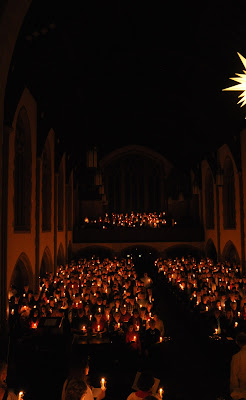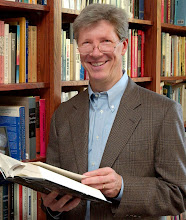Heading out for a week in Umbria, Tuscany and Rome, I noticed how many well-wishers said things like “Enjoy your vacation.” Leading a pilgrimage of 40, I was working – and yet not working, but still not vacationing. We tried to retrace the steps of St. Francis – and the focus wasn’t sightseeing, touring, photography or shopping, but spiritual growth, even daring to get closer to Jesus. A pilgrimage.
Why travel so far, when you can tap into God right here at home? Fact is, we all will go someplace this year – so why not travel to a holy place, with other seekers after God, and at least try to sanctify a journey? It is the reality of the place, and thus the saint or Jesus himself, that is so striking when you find yourself in a holy place like Assisi. Not a pastel myth for a child’s coloring book any longer, Francis becomes as real as the notes he wrote in his own hand, which we inspected, or the elephant tusk the Muslim sultan gave him as a present, a lock of the hair of St. Clare, Francis’s friend, or the stone caves in which Francis prayed, and slept.
So we call this kind of travel “pilgrimage.” For centuries, Christians have left home to make arduous treks to holy places, believing the act of going will imprint some holy mystery forever upon the heart. Timing is everything during a pilgrimage. We arrived at Santa Chiara, one of my favorite, most prayerful churches in Assisi – but three other busloads dumped out at about the same time we arrived, so the prayer chapel was choked with people. Bad timing.

Later we made a last second decision to glance into the obscure little church, San Stefano. No one was there. So small was this chapel that we filled the place – and sang hymns to exploit the acoustics. Very moving, great timing. I planned in advance – and it worked! – to arrive at San Rufino, the church where St. Francis was baptized when no one would be there. We gathered around what must be the world’s most effective baptismal font: not one or two but three saints (Francis, Clare, and Gabrielle – and an emperor, Frederick II for good measure) were baptized there!
Gently we touched water to our heads, remembered our own baptisms, and thought of how parents dream dreams for their children, and how we might dare to dream what God’s dream for the rest of our lives after walking out of San Rufino might actually be.
The ability to take some time in a holy place is everything. I adore the simple chapel of San Damiano, which Francis rebuilt with his hands, and where he prayed and heard Jesus ask him to rebuild the church; but my group was unimpressed, as we were rushed, the press of lunch and closing time bearing down upon us. And yet when we scaled the heights to Monteluco, the prayer convent near Spoleto, we could dally – and so we sat in the monks’ chamber, and tendered moving prayers to God for the world, for loved ones, and for ourselves.

For a pilgrimage to achieve emotional trans-formation and memorable moments, some luck is required. We drove through Tuscany to the obscure mountain hermitage of La Verna, where Francis prayed to be united to the sufferings of the crucified Christ, and was gifted with the stigmata, wounds in his hands, feet and side – a curious miracle if there ever was one, as we usually seek the miracle of a cure, not additional wounds. I had heard there was a processional of monks at 3 pm – so we hustled, somehow got there two minutes in advance, sat through a longish, formal liturgy entirely in Italian and in a wicked cold sanctuary. And then we filed out in line behind the monks, carrying a large wooden cross to the place where Francis was blessed with wounds. We were dumbfounded by finding ourselves part of such a sacred moment. We got in the bus, shivering but warm of heart, and contemplated our own sufferings, and those of the world, and how Jesus is so very near when we suffer. The bus driver, who typically blared bad pop music over the loudspeaker system, played some lovely, simple piano music that was more perfect than anything I could have asked for. I didn’t bother fighting back tears.

Weather is of interest in pilgrimage. It rained when we tried to have Holy Communion on the mountain refuge of Eremo delle Carceri. But instead of dashing for cover, we stayed still. The prayer Rev. Laurie Clark read was one in which Francis thanked God not only for sun and moon but also for wind and rain. Drenched, and blessed, we shared the Body and Blood of our Lord in the rain.
Art and architecture in such pilgrimage zones are both lovely and tacky. We see buildings that have stood since Francis walked into them, but then we grimace over the Baroque kitsch stuck over the original stones, glitzy gilding someone must have thought was attractive once upon a time. The famed Giotto frescoes of Francis’s life are startling in their humanity and emotional intensity. Yet seeing them from floor level is a challenge – hence our gratitude for the touristy books for sale at the gift shops, so at home you can see what you could only dimly see on location.
Sometimes the dissonance of the gaudy and the lovely can be jarring: the monumentally ugly Santa Maria degli Angeli looms over the little dollhouse-like stone chapel, smaller than your kitchen, which Francis adored and kept standing with his love and masonry skills.
Sometimes what we see is just plain weird – like mummies of holy women in San Agostino in Montefalco, and then the mummy of a guy who came to see their mummies, perched on one elbow, eerily petrified in just that posture.
Seeing the mummies of people who arrived at these medieval churches centuries before we did reminds us it’s all about the people. Pilgrimage thrives or falters depending upon the people on the journey, whether they buy into the program of prayerful contemplation, arduous climbing as a spiritual pattern, and trying out holy hospitality on one another. My group in Assisi was marvelous. Being on time is crucial – so when one couple was rather late, everyone rallied around them with compassion, love and laughter. We prayed, and we shared.

We certainly had fun, and even did what others do when they are in Rome: indulging in pasta and tiramisu, plucking linen and icon bargains, and sipping wine late into the evening. Speaking of wine: we loved our visit to the Tabarrini vineyard near Montefalco. I worried for a nanosecond this was a ploy to balance overly spiritual endeavors. But the sanctity of a vineyard: how many of Jesus riveting stories were about vineyards, and stewards? What about the wine he said could stir recollection and even the reality of his shed blood? And as Frederick Buechner reminded us, wine is a potent symbol of the Spirit: it loosens the tongue, makes the timid brave, and heightens laughter and community.
Pilgrimage forms community, as travelers form lasting bonds that endure back home. Not surprising: the places we visit were places where ancient people befriended one another. In a square in Assisi, St. Clare saw St. Francis dancing as he preached, left her parents and formed a band of women to live at San Damiano.
In a stone cell in Santa Sabina (sporting the finest views in all of Rome), St. Francis met with St. Dominic – and how I wish I knew what they talked about! Maybe they were just still – which our group learned is all right, and liberatingly peaceful.
At the convent Le Celle in Cortona, the silence of the place, the absence of the sounds of cars, electrical appliances – the general din that is the omnipresent background music that never can be shut off – was overheard with placid delight.
We noticed two friars simply strolling, slowly, not talking, on a stone path on the hill above. Genuine community, those two men not talking, just being with God and each other.
This pairing of people, the merging of the centuries is for me nowhere more poignant than in a British World War II cemetery, dotted with small stones, each displaying the name of a felled soldier, with some tender sentiment from mum or dad or a wife (“our dearest boy,” “the light of our life,” “we will miss you forever”).
What a perfect location, the specter of death against the backdrop of the cit of the saint of peace, throws the whole enterprise of war not only into question but imagined in light of the designs of God’s ultimate grace.
I am a firm believer in Christopher Lasch’s thought: Children need to learn about faraway places and olden times before they can make sense of their immediate surroundings.” This is why Jesus, his mother, everyone in ancient Israel, and Christian pilgrims throughout the ages, have made pilgrimage to holy places. “Blessed are those in whose heart at the highways to Zion” (Psalm 84:5).
































